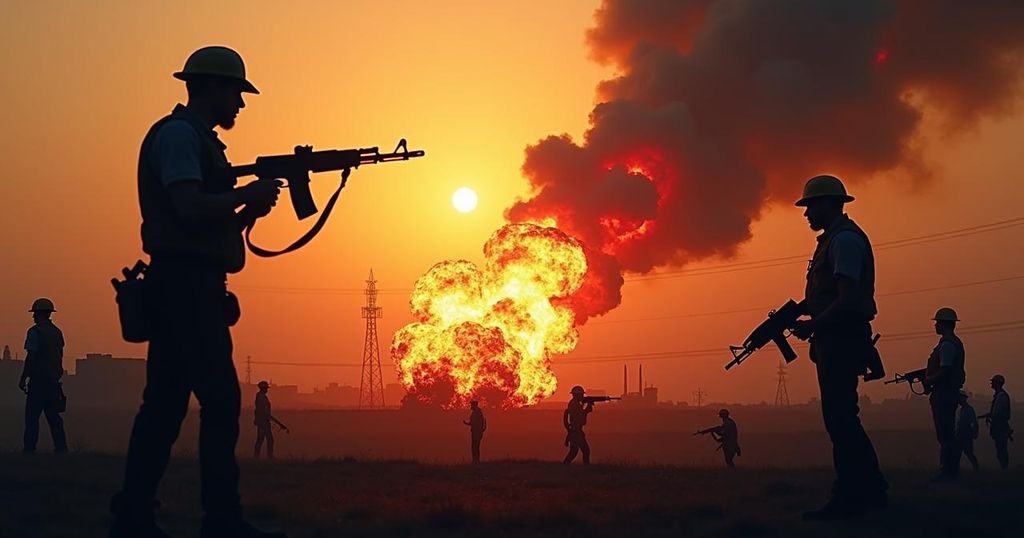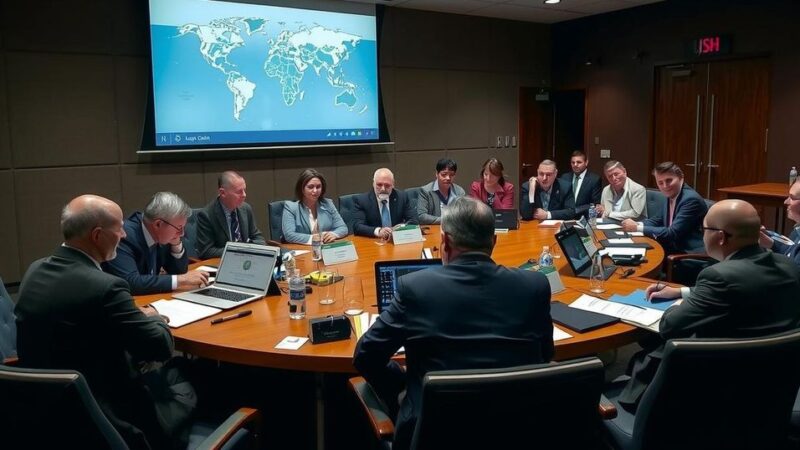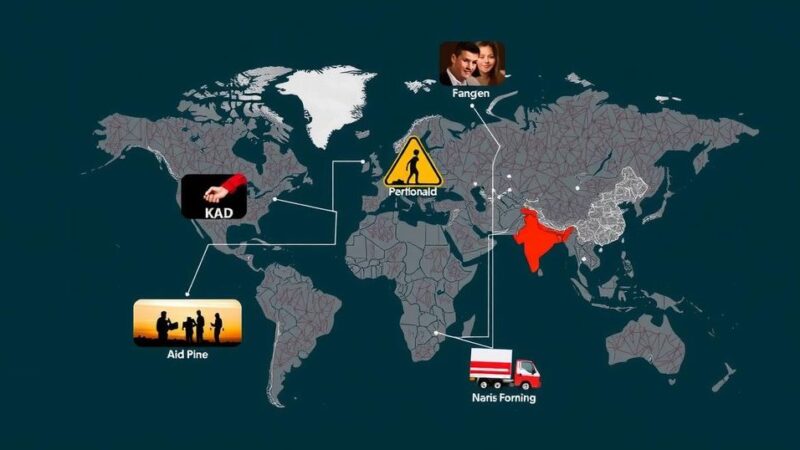Iran’s recent military actions indicate a more aggressive posturing aimed at Israel, following the Iranian Revolutionary Guards Corps’ declaration of retaliation against Israeli-supported killings of their leaders. Former Israeli Prime Minister Naftali Bennett called for targeting Iran’s nuclear facilities, reflecting a shift in Israeli sentiment toward a more aggressive response. The destruction of Hezbollah’s capacity has emboldened Israel, while U.S. military presence in the region signals a protective stance toward Israel. Concerns over regional war escalation grow, leaving little room for diplomatic resolution.
In April, an attack launched by Iran against Israel appeared to be intended as a statement, though the operation was conducted with prior notice and subsequently countered effectively by Israeli and American defense systems. However, the current situation indicates a marked shift in Iran’s approach, suggesting a concerted effort to inflict substantial damage on Israel. The Islamic Revolutionary Guards Corps (IRGC) of Iran publicly declared that their actions were in retaliation for the deaths of high-ranking figures within Hamas and Hezbollah. They issued a warning stating that should Israel respond militarily, Iran would retaliate in kind. In contrast to earlier advice from United States President Joe Biden to Israeli Prime Minister Benjamin Netanyahu to adopt a restrained response, the sentiment in Israel has notably changed. Recently, former Prime Minister Naftali Bennett articulated the view that the current circumstances present an unparalleled opportunity for Israel to reshape the geopolitical landscape of the Middle East. He suggested that Israel should target Iranian nuclear facilities in an effort to severely degrade Iran’s capabilities. Although Mr. Bennett no longer holds the Prime Ministership, his remarks reflect a prevailing sentiment within Israel that favors a more aggressive military posture. There are indications that Israel may contemplate actions against a variety of targets, including Iran’s nuclear sites, petrochemical facilities, or any elements that could detrimentally impact Iran’s economy. Traditionally, Iran maintained a strategic defense alliance with Hezbollah in Lebanon, which boasted an extensive arsenal of sophisticated weaponry intended for use if Iranian interests were threatened. Nevertheless, in the preceding weeks, Israeli forces have reportedly incapacitated significant factions of Hezbollah, purportedly destroying half of their armaments, and have engaged in military incursions into Lebanon. This shift has dismantled the deterrent measures Iran relied upon. As a result, Israel may feel emboldened to initiate military actions against Iranian interests, while the United States has signaled its support by repositioning a carrier battle group in the Mediterranean as a deterrent against Iranian aggression. These developments have contributed to escalating fears regarding potential regional conflict, as the prevailing instability renders any diplomatic resolutions increasingly tenuous.
The geopolitical climate in the Middle East has often been tumultuous, with Israel and Iran frequently at odds due to longstanding hostilities and differing national interests. The Islamic Revolutionary Guards Corps (IRGC) represents Iran’s military prowess and its commitment to defending its interests in the region, particularly against perceived threats from Israel and its allies. The recent escalations in rhetoric and military actions reflect a broader pattern of conflict where political leaders use military posturing to bolster domestic support and shift the balance of power. The involvement of global powers, such as the United States, through military presence further complicates the landscape, raising concerns over wider regional conflict. The hostilities illustrate the delicate balance of power in the region, underscoring the potential for significant military engagements.
In conclusion, the current situation portrays a shift in the dynamics between Iran and Israel, marked by Iran’s intent to conduct impactful military operations and Israel’s potential response. With the Iranian military emboldened and Israel’s defense capabilities seemingly enhanced, the likelihood of escalated conflict is significant. The international community, particularly the United States, remains an influential actor within this complex web of tensions. As events unfold, the possibility of broader conflict looms, necessitating vigilant observation and potential diplomatic intervention.
Original Source: www.bbc.com






